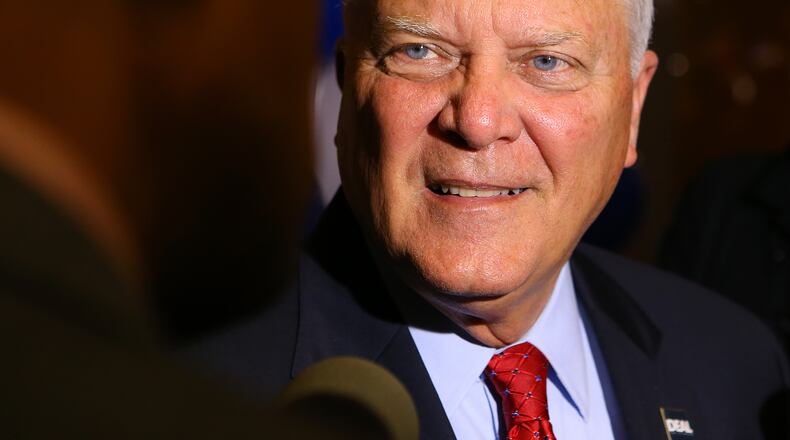Gov. Nathan Deal’s legislation to make changes in the state tax code, including exempting jet fuel from sales taxes, is moving quickly through the House.
Only a few days after House Bill 821 was filed, it passed its first vote before a House panel Wednesday.
Deal is hoping for quick approval, despite legislative consternation over the fact that it does nothing to address a potential $3.6 billion state windfall over the next five years from the federal tax plan approved in December.
Deal told reporters Tuesday that he wanted HB 821 approved, but once more definitive numbers became available, he would consider a separate measure to cut taxes in an effort to pare the windfall.
The bill is an annual measure wedding changes in federal tax law to the state tax code. Typically it draws little attention, but Deal made headlines a few weeks ago by saying he didn't want the bill to address the potential state windfall.
If the administration's estimates are correct, Georgians would pay an additional $153 million in state income taxes this fiscal year, which ends June 30. That figure jumps to $758 million in the next fiscal year, which starts July 1.
That’s largely because the federal tax law limits or eliminates some of the deductions Georgians have used when figuring their state taxes in the past and made it far more likely that ratepayers will use the standard federal deduction, rather than lowering their state taxable income using itemized deductions.
So while many Georgians might pay less in federal taxes, at least some will wind up with bigger state tax bills unless lawmakers make some changes in the tax code.
House members have so far been extremely receptive to the idea of re-creating a sales tax exemption on jet fuel, something that was done away with in 2015 when Delta Air Lines officials got on the wrong side of lawmakers.
Eliminating the state tax and most local taxes would amount to a break of about $50 million for airlines and cargo companies, said House Ways and Means Chairman Jay Powell, R-Camilla.
Airlines that fuel up in Georgia pay the fourth-highest tax in the country, with competing states such as Florida, North Carolina and Texas having no or lower taxes. Administration officials say they hope the savings in fuel taxes will persuade airlines such as Delta to provide more direct international flights.
Clayton County officials said it would cost local governments about $18 million a year.
About the Author
Keep Reading
The Latest
Featured




